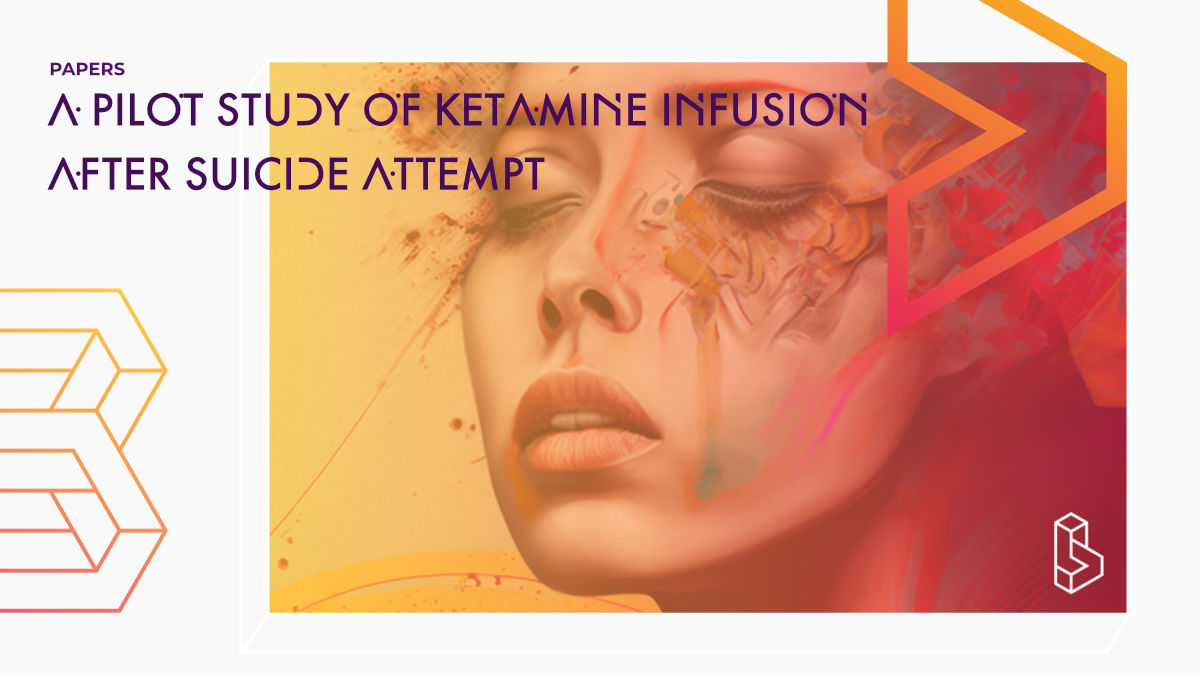This open-label study (n=16) explores the effects of a single dose of intravenous (IV) ketamine (35mg/70kg) in a real-world sample of participants who had recently attempted suicide. Ketamine led to significant and rapid reductions across all measures, with the largest effect sizes observed up to five days post-infusion. Reductions in suicidality were maintained up to six months after the infusion.
Abstract
“Ketamine, in research settings, rapidly reduces suicidal thoughts 2–24 h after a single infusion in patients with high suicidal ideation. In this study, the authors investigate ketamine’s effects on suicidality in a real-world sample of recent suicide attempters on a tertiary-care Consultation-Liaison (CL) psychiatry service. Using an open-label design, 16 transdiagnostic CL patients were recruited, 18–65 years old, to receive a single dose of intravenous ketamine (0.5 mg/kg) in the acute medical setting. All were psychiatrically hospitalized post-infusion. Baseline suicidality and depression measures were compared to ratings taken at 24 h, 5 days, 12 days, and 1, 3 and 6 months post-infusion using paired t-tests. Across all measures, rapid, statistically significant decreases (p’s < 0.001) were observed with large to very large effect sizes (Cohen’s d’s: 1.7–8.8) at acute time points (24 h; 5 days). These gains were uniformly maintained to 6 months post-infusion. Open-label ketamine appeared to rapidly and robustly reduced suicidal symptoms in an ultra-high-risk, heterogeneous, real-world sample. Ketamine infusion may therefore be a safe, feasible, viable method to rapidly reduce suicidality among medically hospitalized patients after a suicide attempt, with potentially enduring benefits. The current pilot findings suggest ketamine could be readily integrated into the settings where high-risk CL patients already receive healthcare, with the potential to become an important and novel tool in the treatment of suicidality.”
Authors: Sharvari Shivanekar, Priya Gopalan, Anthony Pizon, Crystal Spotts, Nicolas Cruz, Michael Lightfoot, Rebecca Rohac, Andrew Baumeister, Angela Griffo, Benjamin Panny, Shelly Kucherer, Alex Israel, Manivel Rengasamy & Rebecca Price
Summary of A Pilot Study of Ketamine Infusion After Suicide Attempt
Suicide is a devastating public health crisis with few available treatments. Pesticides, hanging and firearms are among the most common methods of suicide globally. Suicide rates in the Unites States remain alarmingly high, with firearms being the most common method used in suicides.
The authors of this study use the Nock et al. 2008 definitions of suicide, suicidal ideation and behaviours to classify nonfatal suicidal thoughts and behaviours into three categories: suicide ideation, a suicide plan, and suicide attempt.
Study details
Compounds studied
Ketamine
Topics studied
Suicidality
Study characteristics
Open-Label
Participants
16
Humans
Compound Details
The psychedelics given at which dose and how many times
Ketamine 35 mg | 1x
